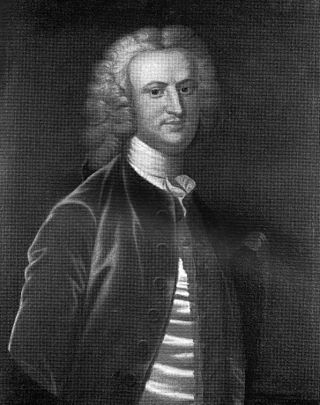
George Washington was an American military officer, statesman, and Founding Father who served as the first president of the United States from 1789 to 1797. Appointed by the Second Continental Congress as commander of the Continental Army in June 1775, Washington led Patriot forces to victory in the American Revolutionary War and then served as president of the Constitutional Convention in 1787, which drafted and ratified the Constitution of the United States and established the American federal government. Washington has thus been called the "Father of his Country".

The Second Amendment to the United States Constitution protects the right to keep and bear arms. It was ratified on December 15, 1791, along with nine other articles of the Bill of Rights. In District of Columbia v. Heller (2008), the Supreme Court affirmed for the first time that the right belongs to individuals, for self-defense in the home, while also including, as dicta, that the right is not unlimited and does not preclude the existence of certain long-standing prohibitions such as those forbidding "the possession of firearms by felons and the mentally ill" or restrictions on "the carrying of dangerous and unusual weapons". In McDonald v. City of Chicago (2010) the Supreme Court ruled that state and local governments are limited to the same extent as the federal government from infringing upon this right. New York State Rifle & Pistol Association, Inc. v. Bruen (2022) assured the right to carry weapons in public spaces with reasonable exceptions.

The Thirteenth Amendment to the United States Constitution abolished slavery and involuntary servitude, except as punishment for a crime. The amendment was passed by the Senate on April 8, 1864, by the House of Representatives on January 31, 1865, and ratified by the required 27 of the then 36 states on December 6, 1865, and proclaimed on December 18. It was the first of the three Reconstruction Amendments adopted following the American Civil War.

The National Rifle Association of America (NRA) is a gun rights advocacy group based in the United States. Founded in 1871 to advance rifle marksmanship, the modern NRA has become a prominent gun rights lobbying organization while continuing to teach firearm safety and competency. The organization also publishes several magazines and sponsors competitive marksmanship events. According to the NRA, it had nearly 5 million members as of December 2018, though that figure has not been independently confirmed.

Jews for the Preservation of Firearms Ownership (JPFO) is a 501(c)(3) nonprofit organization dedicated to the preservation of gun rights in the United States and to encourage Americans to understand, uphold, and defend "all of the Bill of Rights for all Citizens." The group was founded by U.S. Navy veteran, former FFL dealer, and author Aaron S. Zelman in 1989. Jews for the Preservation of Firearms Ownership recognizes the Second Amendment as protecting a pre-existing natural law right of individuals to keep and bear arms. It is based in Bellevue, Washington.

Benedict Arnold was an American-born military officer who served during the American Revolutionary War. He fought with distinction for the American Continental Army and rose to the rank of major general before defecting to the British in 1780. General George Washington had given him his fullest trust and had placed him in command of West Point in New York. Arnold was planning to surrender the fort to British forces, but the plot was discovered in September 1780, whereupon he fled to the British lines. In the later part of the war, Arnold was commissioned as a brigadier general in the British Army and placed in command of the American Legion. He led the British army in battle against the soldiers whom he had once commanded, after which his name became synonymous with treason and betrayal in the United States.

Gun politics is defined in the United States by two primary opposing ideologies concerning the private ownership of firearms. Those who advocate for gun control support increasingly restrictive regulation of gun ownership; those who advocate for gun rights oppose increased restriction, or support the liberalization of gun ownership. These groups typically disagree on the interpretation of the text, history and tradition of the laws and judicial opinions concerning gun ownership in the United States and the meaning of the Second Amendment to the Constitution of the United States. American gun politics involves these groups' further disagreement concerning the role of firearms in public safety, the studied effects of ownership of firearms on public health and safety, and the role of guns in national and state crime.

The Volokh Conspiracy is a legal blog co-founded in 2002 by law professor Eugene Volokh, covering legal and political issues from an ideological orientation it describes as "generally libertarian, conservative, centrist, or some mixture of these." It is one of the most widely read and cited legal blogs in the United States. The blog is written by legal scholars and provides discussion on complex court decisions.
Gun laws in the United States regulate the sale, possession, and use of firearms and ammunition. State laws vary considerably, and are independent of existing federal firearms laws, although they are sometimes broader or more limited in scope than the federal laws.

Liberty's Kids is an American animated historical fiction television series produced by DIC Entertainment, and originally aired on PBS Kids from September 2, 2002, to April 4, 2003, with reruns airing on most PBS stations until October 8, 2004.

David B. Kopel is an American author, attorney, gun rights advocate, and contributing editor to several publications.
The Violence Policy Center (VPC) is an American nonprofit organization that advocates for gun control.

The Protection of Lawful Commerce in Arms Act (PLCAA) is a U.S law, passed in 2005, that protects firearms manufacturers and dealers from being held liable when crimes have been committed with their products. Both arms manufacturers and dealers can still be held liable for damages resulting from defective products, breach of contract, criminal misconduct, and other actions for which they are directly responsible. However, they may be held liable for negligent entrustment if it is found that they had reason to believe a firearm was intended for use in a crime.

Gun show loophole is a political term in the United States referring to the sale of firearms by private sellers, including those done at gun shows, that do not require the seller to conduct a federal background check of the buyer. This is also called the private sale exemption. Under federal law, any person may sell a firearm to a federally unlicensed resident of the state where they reside, as long as they do not know or have reasonable cause to believe that the person is prohibited from receiving or possessing firearms.
Sandra S. "Sandy" Froman is an American author, attorney, professional speaker, and a past President of the National Rifle Association of America.
Marion P. Hammer is an American gun advocate and lobbyist who was the first female president of the National Rifle Association of America (NRA), from 1995 to 1998.

Clayton E. Cramer is an American historian, author, gun enthusiast, and software engineer. He played an important early role in documenting errors in the book Arming America by Michael A. Bellesiles, a book that was later proven to be based on fraudulent research. His work was cited by the United States District Court for the Northern District of Texas in United States v. Emerson, 46 F.Supp.2d 598. His research also informed the Supreme Court decision in the Second Amendment cases District of Columbia v. Heller and McDonald v. Chicago. He holds an MA in history from Sonoma State University. He currently resides in Horseshoe Bend, Idaho, near Boise.

In the American Revolution, gaining freedom was the strongest motive for Black enslaved people who joined the Patriot or British armies. It is estimated that 20,000 African Americans joined the British cause, which promised freedom to enslaved people, as Black Loyalists. Around 9,000 African Americans became Black Patriots.

The Nazi gun control argument is the claim that gun regulations in Nazi Germany helped facilitate the rise of the Nazis and the Holocaust. Historians and fact-checkers have characterized the argument as dubious or false, and point out that Jews were under 1% of the population and that it would be unrealistic for such a small population to defend themselves even if they were armed.

Benedict Swingate Calvert was a planter, politician and a Loyalist in Maryland during the American Revolution. He was the son of Charles Calvert, 5th Baron Baltimore, the third Proprietor Governor of Maryland (1699–1751). His mother's identity is not known, though one source speculates that she was Melusina von der Schulenburg, Countess of Walsingham. As he was illegitimate, he was not able to inherit his father's title or estates, which passed instead to his half brother Frederick Calvert, 6th Baron Baltimore (1731–1771). Benedict Calvert spent most of his life as a politician, judge and planter in Maryland, though Frederick, by contrast, never visited the colony. Calvert became wealthy through proprietarial patronage and became an important colonial official, but he would lose his offices and his political power, though not his land and wealth, during the American Revolution.















